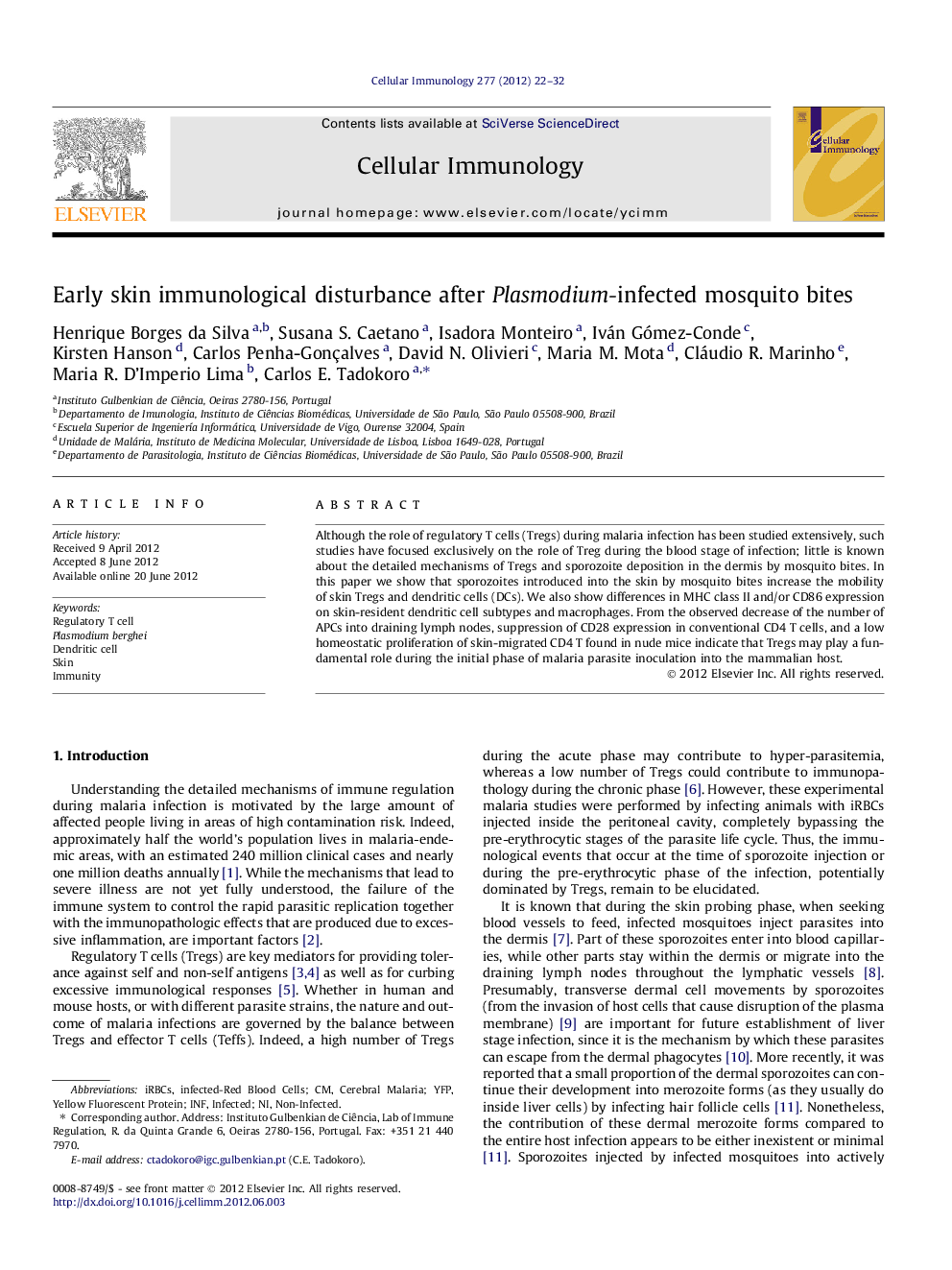| Article ID | Journal | Published Year | Pages | File Type |
|---|---|---|---|---|
| 2167366 | Cellular Immunology | 2012 | 11 Pages |
Although the role of regulatory T cells (Tregs) during malaria infection has been studied extensively, such studies have focused exclusively on the role of Treg during the blood stage of infection; little is known about the detailed mechanisms of Tregs and sporozoite deposition in the dermis by mosquito bites. In this paper we show that sporozoites introduced into the skin by mosquito bites increase the mobility of skin Tregs and dendritic cells (DCs). We also show differences in MHC class II and/or CD86 expression on skin-resident dendritic cell subtypes and macrophages. From the observed decrease of the number of APCs into draining lymph nodes, suppression of CD28 expression in conventional CD4 T cells, and a low homeostatic proliferation of skin-migrated CD4 T found in nude mice indicate that Tregs may play a fundamental role during the initial phase of malaria parasite inoculation into the mammalian host.
► Plasmodium-infected mosquito bites induce mobilization of DCs and Tregs. ► Infected mosquito bitten mice reduce DCs influx into skin-draining LNs. ► Poor homeostatic proliferation of CD4 T cells are observed from infected mosquito bitten mice.
